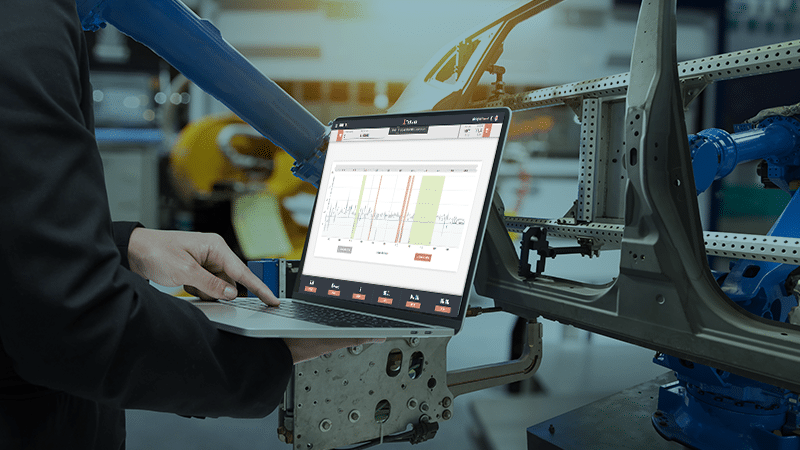
TeamSystem acquires TechMass: Exit within just two years from its incorporation
23 September 2020
TechMass in 90 seconds
24 May 2021The future of Operations in manufacturing: MES, IoT & Cloud platforms
Manufacturing industries of the third millennium are facing increasingly difficult challenges to remain competitive in the market. This affects above all the Operations, central for the production and delivery of the final product to the consumer.
The technology has supported operations with various systems, such as Manufacturing Execution Systems (MES), which can provide information about productivity and production. Today they need to be restructured in order to manage the factory with the agility and flexibility that the market requires.
The digital transformation that the manufacturing sector is going through offers opportunities and solutions with high added value, capable of solving problems that were previously difficult to solve. Solutions that can be integrated in a simpler, more effective and pragmatic way.
The 4 challenges of manufacturing industriesù
But what are the main challenges that manufacturing industries face?
We can identify mainly four of them. Some already known in the past today require constant intensification; other new ones, on the other hand, are dictated by the changes in the globalized market.
So here are the challenges:
1. Increase productivity
When it comes to productivity, the concept of marginality has assumed a crucial role in economies and manufacturing dynamics. Companies are thus forced to focus more and more on the issue in order to remain competitive.
Nowadays all production sectors have to deal, more or less directly, with production efficiency and process improvement. A step that must be managed both at the methodological level of the process and with the support of technologies, aimed for example at measuring losses.
2. Improve the quality
The concept of quality has also undergone a transformation over time, becoming a differentiating and distinctive element for companies. The role of Quality Control has evolved a lot in recent decades both at a theoretical and practical level within companies.
Unlike in the past, it is the customers themselves, within the process chain, who want to monitor their suppliers even before the end customers. The amount of data, the complexity and variability of this information makes the use of supporting systems and technologies practically inevitable.
3. Implement traceability
Another important challenge is linked to the issue of traceability. Increasingly stringent regulations have forced companies to track products, raw materials and production steps within the supply chain.
The implications for customers, both legal and business-related, require an increasingly careful and timely control which – together with the variability and attention in processes – can no longer be managed without the aid of appropriate technological systems.
4. Speed up and make production more flexible
The speed and flexibility of its production represent new challenges: they make the management of manufacturing companies more complex and undermine their stability and safety.
The market dynamics and the ways of purchasing goods and services on the Amazon model have influenced the market to the point of defining this phenomenon as “the Amazon effect”, resulting in a growing variability in consumer demand, increasingly accustomed to immediate delivery and customized.
These new trends are inevitably reflected in the production lines. In fact, not only is greater control and real-time analysis of the progress of operations required, but also a certain flexibility of the production systems and the ability to react instantly to fluctuations, while ensuring quality, efficiency and traceability.
MES systems between limits and evolutions
These challenges have traditionally been answered with the optimization of processes at a theoretical, organizational and process level both with the aid of the Lean methodology and through the use of technologies and systems, such as MES.
MES systems, which have evolved over time, are the backbone of factory management. They represent a fundamental step, necessary but not sufficient, to structure processes, improve productivity and keep track of production line events.
The world of MES, as we knew it until a year or two ago, however, is not able to respond to the new challenges that have arisen in the manufacturing sector.
Most MES implementations started over a decade ago, when systems were built with a focus more on IT-technological limitations than process and when the needs were not the same as they are today, at a time in which the current models and technologies that make software solutions flexible and scalable were still immature. These implementations are based on local servers, on rigid and inflexible architectures, on obsolete IT and usability paradigms, and in which the addition or evolution of features are still linked to very slow release and update cycles.
The manufacturing sector needs a lean and effective system that at the same time provides the possibility to expand in a flexible way, able to communicate, without barriers or slowdowns, with all the other factory systems (eg. ERP, MRP, HR…). A system, therefore, accessible, easy to use, to install and to reconfigure as needed. A system that does not impose certain work-processes on operators but instead knows how to adapt to needs and evolve in no time when they change.
The MES of the future
The MES of the future are structured on IoT and Cloud frameworks. Thanks to these technologies, they are thus able to provide all the basic functions, from shop-floor connectivity to machine learning, and able to exploit the potential provided by the revolutionary technological solutions available today.
These architectures allow you to limit costs while allowing you to release regular updates and provide the flexibility and configurability you need. A further advantage is obtained by choosing platforms based on SaaS (software as a Service) business models, or licensed, which allow you to pay on the basis of actual use. This minimizes the risk, maximizing the return. You also have the possibility to continuously choose which supplier to collaborate with and to pay only for the actual services provided.
It is in this context that TechMass fits, providing an IoT and Cloud solution capable of responding to the challenges of Operations in the manufacturing industries in an innovative way.
In fact, TechMass offers a simple but powerful solution that can be easily installed. A solution that, step by step, accompanies companies in their growth, according to their needs. The target? Track, monitor and improve production in a broad sense, with an all-round solution.
TechMass diventa TeamSystem!
Abbiamo percorso tanta strada insieme, e per migliorare ogni giorno i nostri servizi abbiamo deciso di continuare a crescere insieme a TeamSystem! Non cambierà nulla per te e i nostri servizi andranno in continuità. Il nostro sito nelle settimane successive sarà spento, ma potrai trovarci nel sito di TeamSystem!




